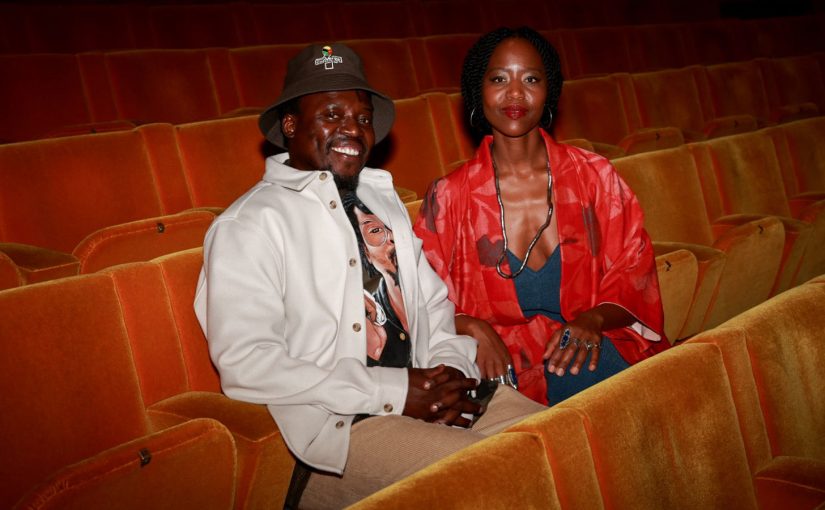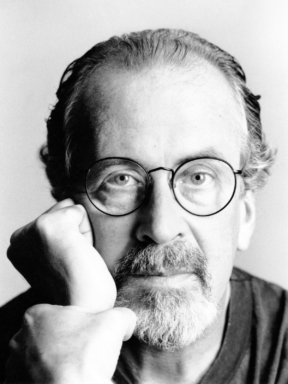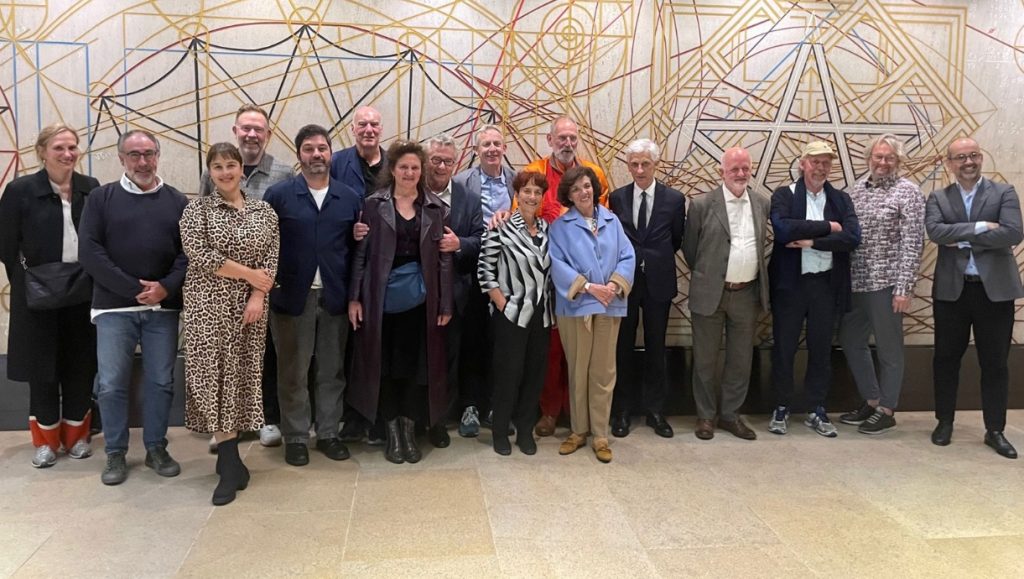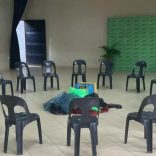Mozambique: Mia Couto an optimist without hope - interview
Mozambique: Idio Chichava wins Gulbenkian’s SEDA Award alongside Dorothée Munyaneza

The Salavisa European Dance Award 2024 was granted to Idio Chichava (Mozambique) and Dorothée Munyaneza (Rwanda/UK/France). [Photo: Courtesy of Calouste Gulbenkian Foundation]
- Two innovative artists win the Salavisa European Dance Award 2024
Dorothée Munyaneza and Idio Chichava are the first winners of the Salavisa European Dance Award, a prize created by the Calouste Gulbenkian Foundation in collaboration with another six European artistic institutions – ImPulsTanz – Vienna International Dance Festival (Austria), KVS (Belgium), Dansehallerne (Denmark), Maison de la Danse/Biennale de la Danse (France), Joint Adventures (Germany), and Sadler’s Wells (United Kingdom).
Chosen from a shortlist of five nominees, by a Jury of three independent experts – Mette Ingvartsen, Nayse López and Fu Kuen Tang – the winners will share the €150,000 prize and have the opportunity to showcase their work on the stages of the partner institutions.
The Jury felt that Dorothée Munyaneza and Idio Chichava stood out ‘for their particularly successful artistic approaches in recent works, as well as for the close link they maintain with their artistic contexts, communities and collaborators.’ The Jury stressed that the work of both Dorothée and Idio is ‘rooted not just in personal artistic interests, but also in a complex understanding of the world around them and the crucial role that dance can play in broader social discussions.’
Dorothée Munyaneza is a multifaceted artist. A singer, musician, dancer, actress, writer and choreographer, she rejects boundaries and uses music, song, text and movement to approach rupture as a dynamic force and create spaces of resonance and hope. Born in Rwanda, she studied Music and Social Sciences in London, after which she moved to Paris, where she worked with various choreographers. In 2013, she formed her own company, Kadidi. In the Jury’s opinion, Dorothée visits the places that hurt most, ‘connecting history, trauma, but also love and hope, with a deep comprehension of the body and its potential to tell stories and create emotional spaces.’
Idio Chichava is a dancer, choreographer and artistic director with the dance company Converge+, in Mozambique, the country to which he returned after a successful career in France. In his native land, he has promoted free dance tuition in local communities and invested in multidisciplinary productions and collaborative creations where everyone has space to explore their own inner world. The Jury regard Idio’s work as ‘a powerful affirmation of collective energy and the desire to create and coexist.’
Salavisa European Dance Award
The Salavisa European Dance Award (SEDA) aims to pay tribute to Jorge Salavisa, artistic director of Ballet Gulbenkian between 1977 and 1996, and to recognize talented dancers from all around the world.
Created in 2023 by the Calouste Gulbenkian Foundation to honour the legacy of the Portuguese dancer, teacher and artistic director Jorge Salavisa (1939–2020), the Salavisa European Dance Award (SEDA) will be attributed to artists from all around the world who demonstrate talent or special qualities that deserve to be better known beyond their national borders.
This award, which provides a sum of €150,000 in prize money, hopes to establish itself as an incentive for artists with artistic maturity who do not fall within a strict age category and are still little known on the European circuit due to their artistic discourse or their social and cultural background.
The Salavisa European Dance Award 2024 was granted to Dorothée Munyaneza (Rwanda/UK/France) and Idio Chichava (Mozambique).
Since its creation in 1956, the Calouste Gulbenkian Foundation has played a central role in the development of culture and the arts in Portugal.
The Ballet Gulbenkian (1965–2005), a repertory company which staged the classics of modern and contemporary dance, was decisive in the development of this art form. The ACARTE Encounters (1987–2000), an international performing arts festival which hosted and co-produced emblematic works of so-called new European dance, also had a crucial impact in establishing independent dance in Portugal.
However, Gulbenkian Foundation’s role in developing dance extends to other important areas such as the regular awarding of scolarships and the provision of grants for projects, research and the internationalisation of artists and their work.
The creation of a European dance award is therefore another Calouste Gulbenkian Foundation initiative that furthers its mission to promote dance in Portugal and the rest of the world.
Jorge Salavisa’s bio

Jorge Salavisa (Lisbon, 13 November 1939 – 28 September 2020) began studying dance under Anna Mascolo before furthering his training and career in Paris and London. He worked with some of the greatest names in world ballet, such as Rudolf Nureyev and Margot Fonteyn.
Before returning to Portugal in 1977, at the invitation of the Calouste Gulbenkian Foundation, Jorge Salavisa worked with the Grand Ballet du Marquis de Cuevas, Ballet National Populaire, Ballet de Paris and London Festival Ballet (where he was the first non-Briton to take up a position).
In addition to being artistic director of Ballet Gulbenkian (a position he occupied from 1977 to 1996), he also taught in various cities in the US, at the Portuguese National Conservatory School of Dance (EDCN) and at P.A.R.T.S. – Performing Arts Research and Training Studios in Belgium, of which he was also a founder.
One of the country’s most influential cultural programmers, Salavisa was responsible for the dance events during Lisbon’s period as European Capital of Culture in 1994. He was also Chair of the Board of Directors of the National Ballet of Portugal (CNB) and Director of the São Luiz Teatro Municipal.
Partners
Accompanying the Gulbenkian Foundation in setting up this award are six European cultural institutions which will play an active role in nominating candidates and presenting their work to the public:
- ImPulsTanz – Vienna International Dance Festival (Vienna, Austria)
- KVS (Brussels, Belgium)
- Dansehallerne (Copenhagen, Denmark)
- Maison de la Danse/Biennale de la Danse (Lyon, France)
- Joint Adventures (Munich, Germany)
- Sadler’s Wells (London, United Kingdom)

Another partner is the Kees Eijrond Foundation. Kees Eijrond was a great friend of Jorge Salavisa and a driving force behind SEDA.
The five nominees
The shortlist of five artists nominated for the SEDA Award is the outcome of a selection process that entailed deliberation and voting by a Nomination Committee comprised of representatives from each partner institution.
For the first edition of SEDA the five nominees were:
- Bouchra Ouizguen (Morocco)
- Catarina Miranda (Portugal)
- Dalila Belaza (Algeria/France)
- Dorothée Munyaneza (Rwanda/UK/France)
- Idio Chichava (Mozambique)













Leave a Reply
Be the First to Comment!
You must be logged in to post a comment.
You must be logged in to post a comment.